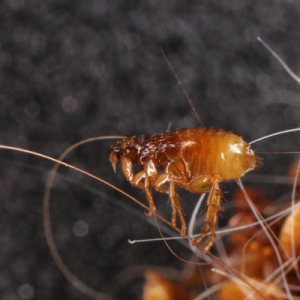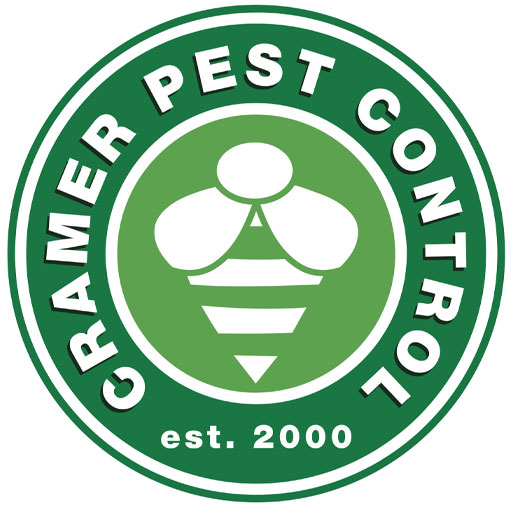Fleas are one of the most common issues facing cat and dog owners. They can be picked up from many places, and you may not realize there’s a problem until your pet is scratching and biting its fur off. Fleas can be easily eradicated through various control methods, but unfortunately, the harm they bring to your pet’s health is not so easily fixed. By investing in a flea control treatment for your yard, you can save your pet from these medical conditions.
Diseases Caused By Fleas
Flea Bite Dermatitis
When fleas bite your cat or dog, they inject their saliva containing histamine-type compounds that can trigger an allergic reaction on your pet’s skin. Some pets are hyper-sensitive and will have an inflammatory response within minutes; others take up to 48 hours. This inflammatory response causes severe itching, scratching, and biting. Your pet’s skin can break open from all the scratching, and you may notice scabs forming. These open sores can allow infections to enter the skin, making it difficult to heal.
Tapeworms
When pets have fleas, they sometimes will not only scratch with their hind legs but also use their teeth to nimble at the itchy areas. When this happens, they may inadvertently ingest a flea. This can also happen when a pet is grooming another pet in your household that is infected with fleas. When this happens, they may be exposed to tapeworms. Tapeworms are a type of parasite that lives in fleas. They can grow to be four to 28 inches in length and may resemble maggots. Once your pet has ingested the tapeworm, it will set up residence in its small intestine. The worms are segmented so that, as these segments break off, they will collect in the dog or cat’s stool so the cycle can begin again. This happens because each segment contains egg packets. Since tapeworms dwell in your pet’s intestines, you may notice your pet itching or biting at their rear end in an attempt to scratch the “itch” of the tapeworm activity.
Flea Bite Anemia
Usually, this condition affects kittens and puppies. When a flea infestation is particularly bad, a pet might experience so much blood loss that it actually lowers its blood count. We see this more in puppies and kittens because they have smaller body mass and, therefore, less blood. An adult dog or cat could have the same number of fleas but not experience full-blown anemia.
How To Get Rid Of Fleas On Dogs And Cats
The easiest way to remove flea eggs and adults on your pet is with a flea comb. This type of comb is very fine-toothed so that you can pull out bugs. Have a dish or bowl full of water and dish soap. Dip the comb into the dish soap to remove the fleas. Since fleas rely on jumping to get around, the soap breaks the surface tension of the water, which means the fleas won’t be able to spring their way out. Be sure to visit your vet as soon as possible for flea control. If you have carpets or rugs, you’ll need to spray them with a solution that kills fleas. Your vet can also provide you with medication to give your pet that will eradicate any fleas within a few days.
Another good habit to get into: always check pets after they’ve been outside. Giving them a quick brushing, and checking between the pads of their feet, can help you find any flea passengers.
How To Get Rid Of Fleas
The most effective means of controlling these annoying pests is to get a flea treatment for your lawn. Fleas are incredibly adaptive. They can be brought in on other critters like squirrels, mice, or even raccoons. And they can lurk in places you wouldn’t normally think of, underneath decks and porches, for example. Even if you keep your dog away from wooded areas or places with tall grass, they could still pick up fleas in your own yard. You can also track flea eggs in if you have done yard work in shady areas of your yard or gone near tall lawn ornamentals. While fleas don’t live on humans, we don’t want to accidentally track them inside where they can terrorize our pets.
By opting for flea treatment for your yard, you will accomplish two things. First, this treatment will kill fleas in all stages of their life cycle, from eggs to larvae, to adults. Second, your pest control technician can point out problem areas—things like uncleared piles of leaves or unkempt grass. By spraying and assessing your property, you’ll have peace of mind knowing that your pets are protected.
Hire Professional Pest Control Near Charlotte, NC
The experts at Cramer Pest Control have treated thousands of yards just like yours in both North and South Carolina. We offer flea treatments as well as a variety of other pest control applications to keep your yard, home, or business safe and pest-free. If you’d like to learn more, call (704) 763-0204 for service in North Carolina and (803) 802-7540 for service in South Carolina, or leave us a message online.
Interested in other pest control topics? You can check out our twice-a-month blog here. You can also like our Facebook page to stay up-to-date on the latest service offerings and deals.
